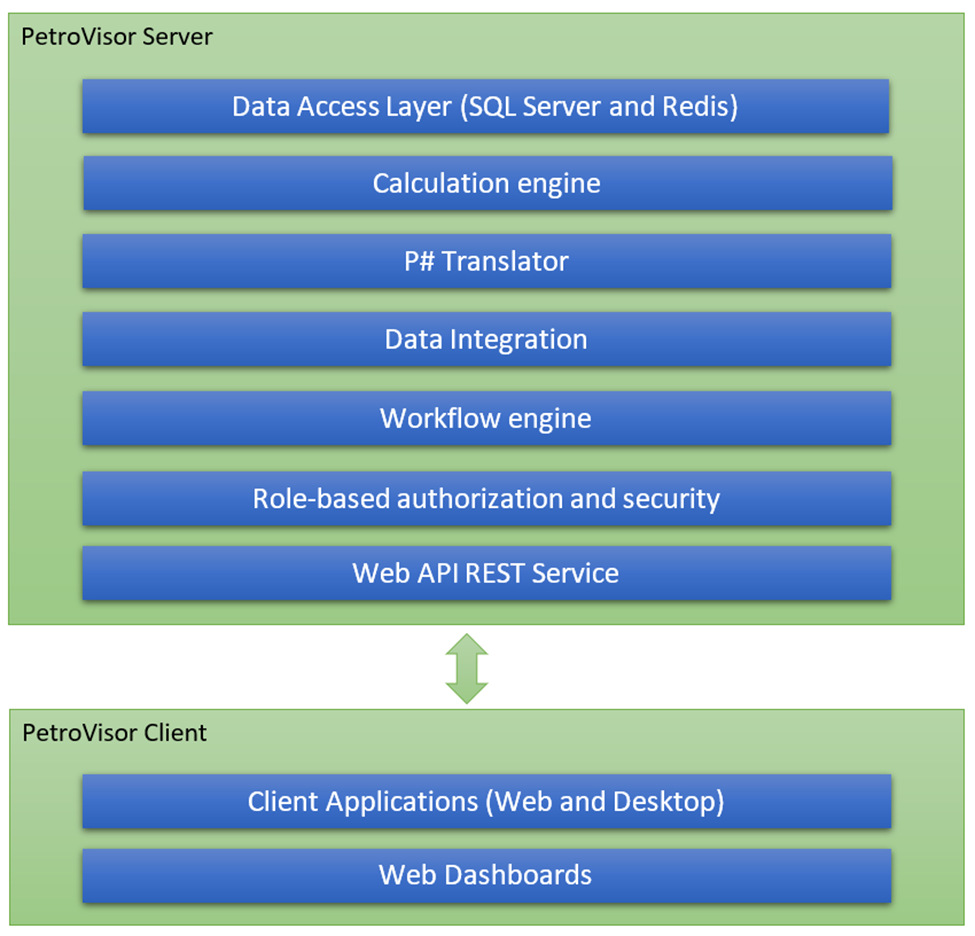What is the PetroVisor Software Architecture System Integration View?

1.1 Web API REST Service
Single set of PetroVisor domain objects and their operations.
The same definitions are used on all levels for external and internal communication between components. Contains no external dependencies. Consist of two parts:
- Domain object definitions as C# POCO objects which are also available as lightweight Json objects.
- Sets of possible operations on the defined domain objects defined as C# interfaces and grouped by domain objects as “services” using ‘repository’ design pattern (e.g. hierarchy service contains all possible operations for hierarchy domain object).
Latest detailed description could be found in the PetroVisor API help file.
The service is hosted as Windows service.
1.2 Database access layer
PetroVisor uses ADO.NET and built in SQL server data access provider.
This includes not only standard SQL based functionality, but also built-in high-performance optimization methods like ‘batch inserting’, table-value parameters and in-memory caching.
1.3 Calculation engine
PetroVisor calculation engine is based on using .NET Framework built in expression trees. It dynamically builds C# expressions from P# statements for on-the-fly execution of the complex calculations.
1.4 P# Translator
PetroVisor uses open source ANLTR (http://www.antlr.org) lexer/parser generator to translate P# language text to corresponding PetroVisor API objects and calls expressed in C# code.
Required run-time component is a part of PetroVisor deployment.
1.5 Data Integration
Contains all components required for access external data sources. Required components are parts of PetroVisor deployment.
See the following table for used components.
Workflow engine
PetroVisor uses its own performance-oriented workflow engine to design, store and execute user-defined workflows using predefined and custom workflow activities. Workflow engine is hosted as a separate Windows service.
Role-based authorization and security
PetroVisor uses .NET Core built in ASP.NET Identity model with user and roles.
Standard SQL server implementation is used for storage of roles, users and their details (encrypted).
Client web and desktop applications
Applications which are using PetroVisor API – either directly as REST web service or using PetroVisor client library.
Web dashboards
User defined web applications, created and configured using PetroVisor visualization tools without using programming languages.